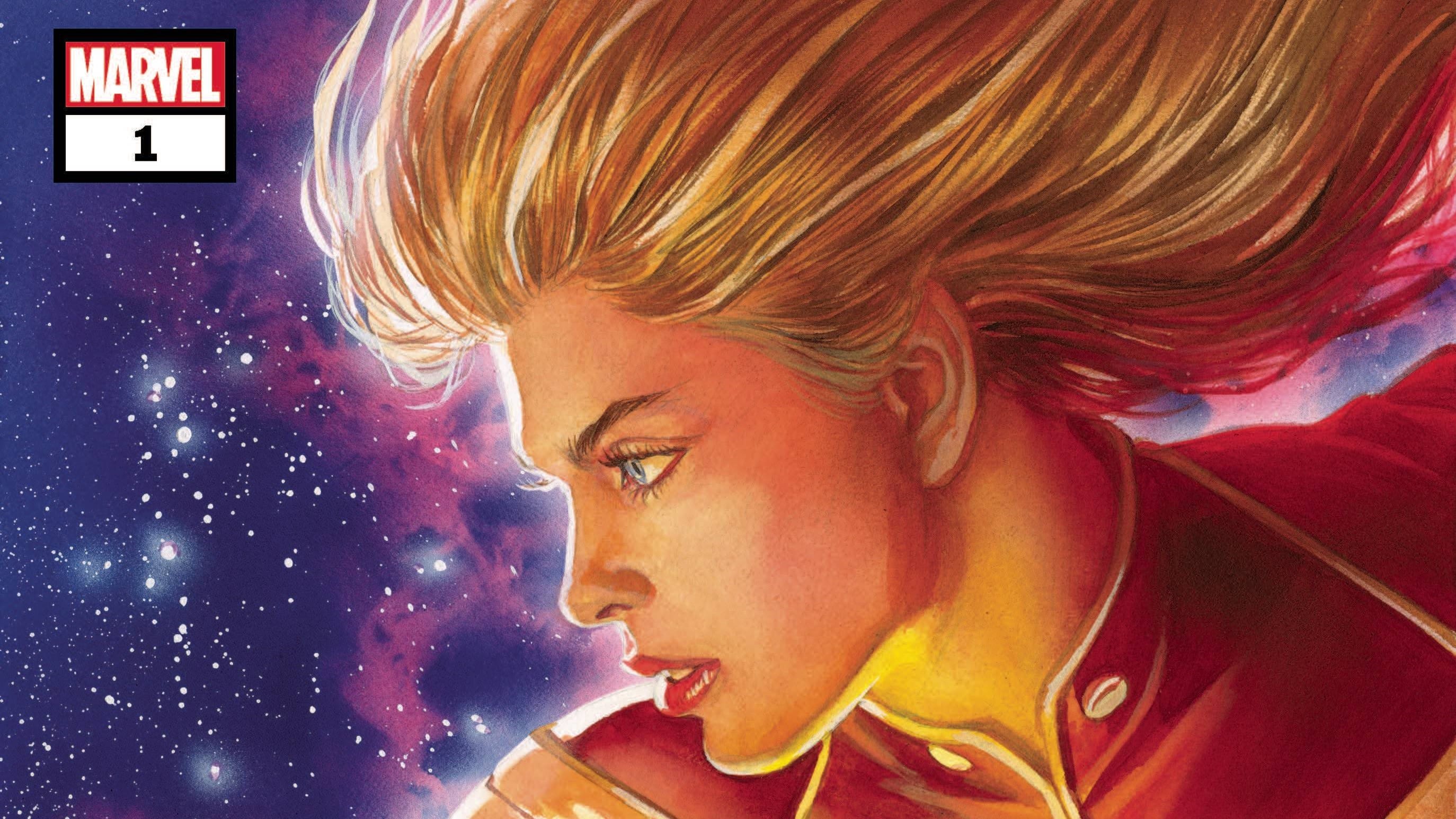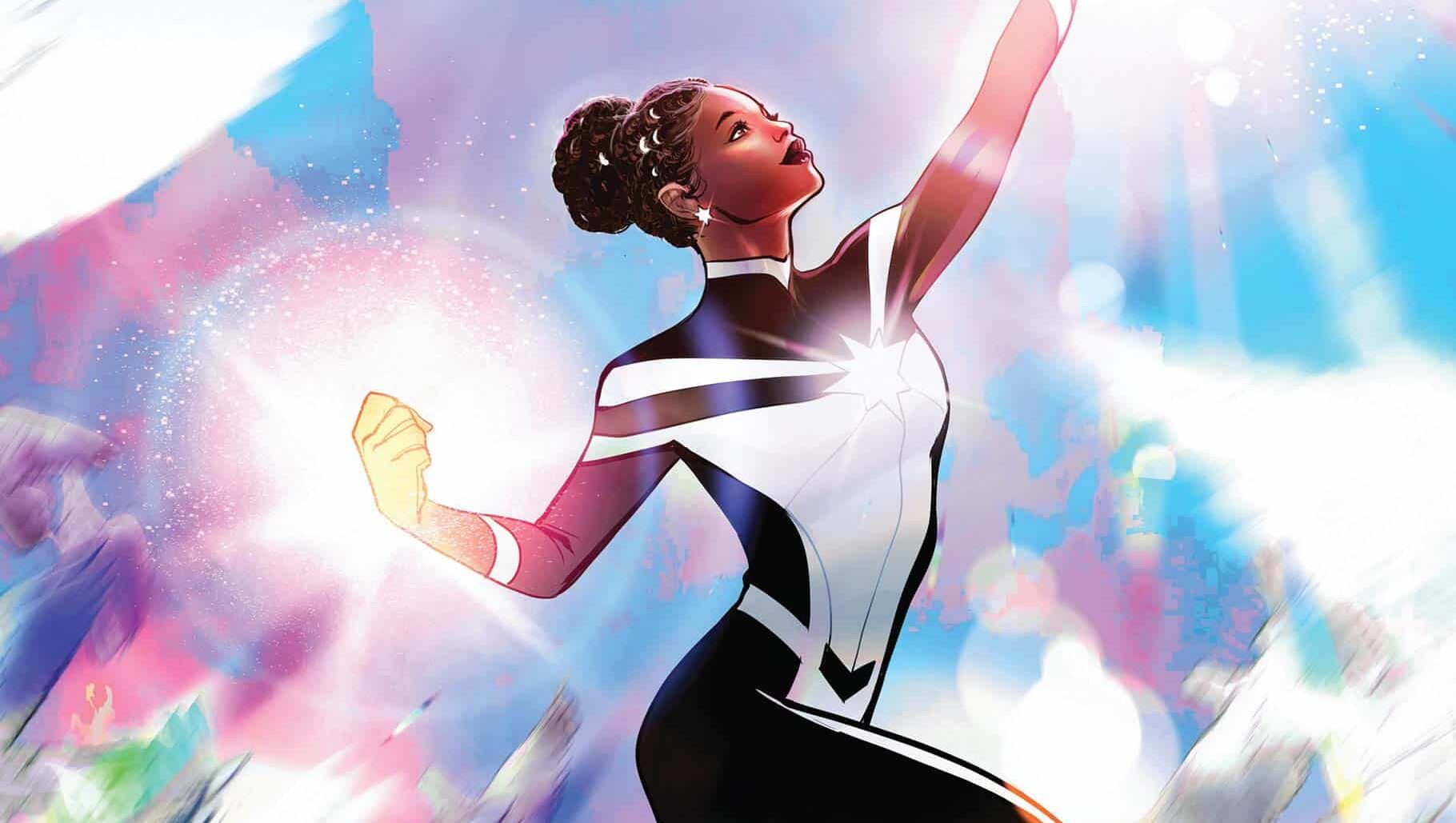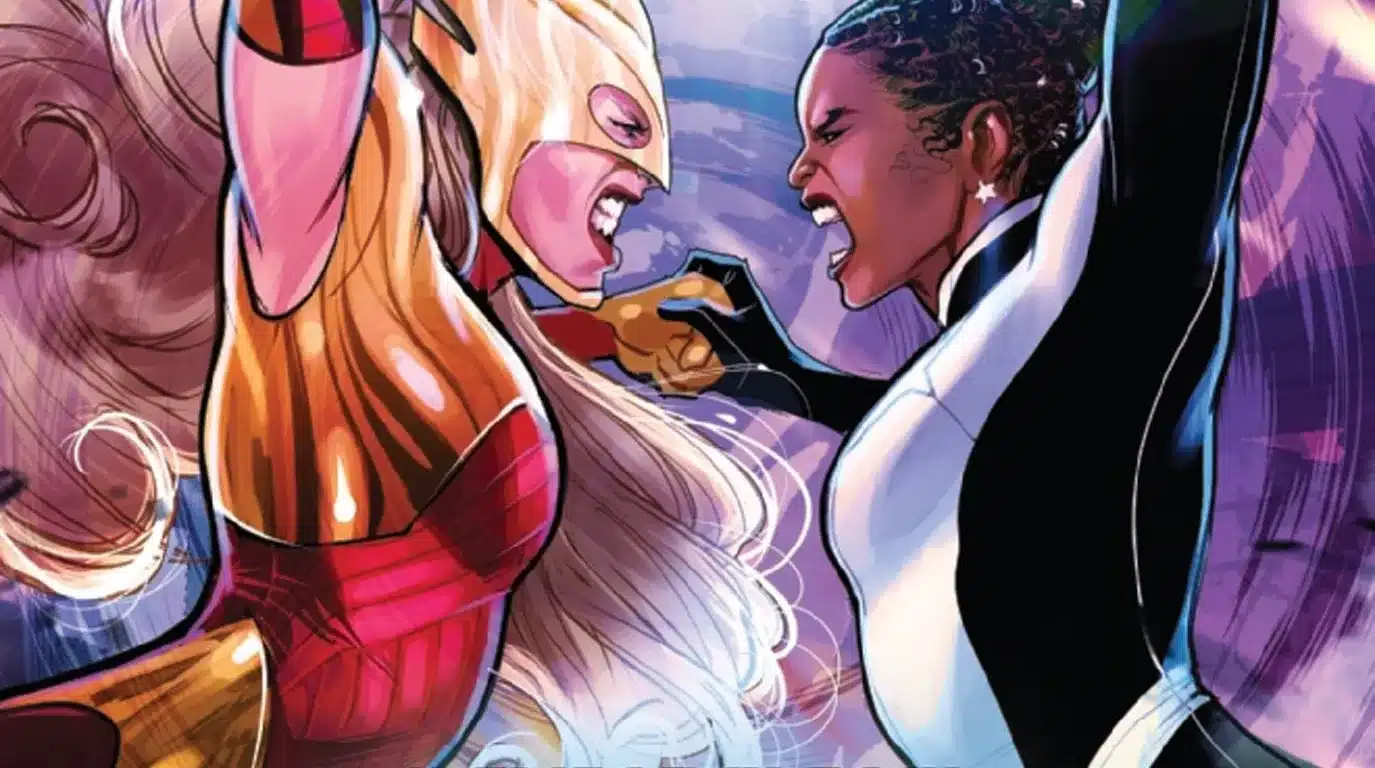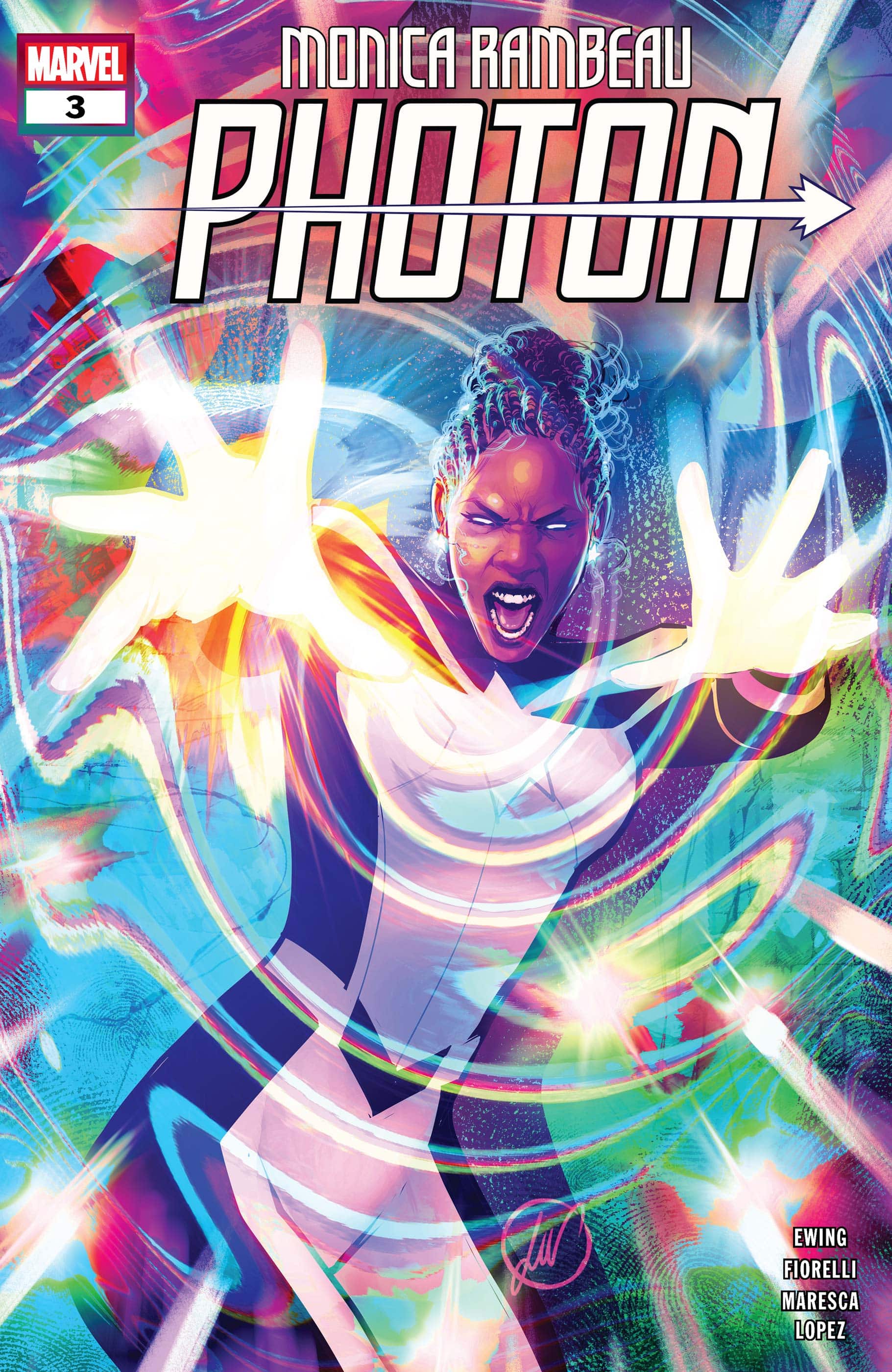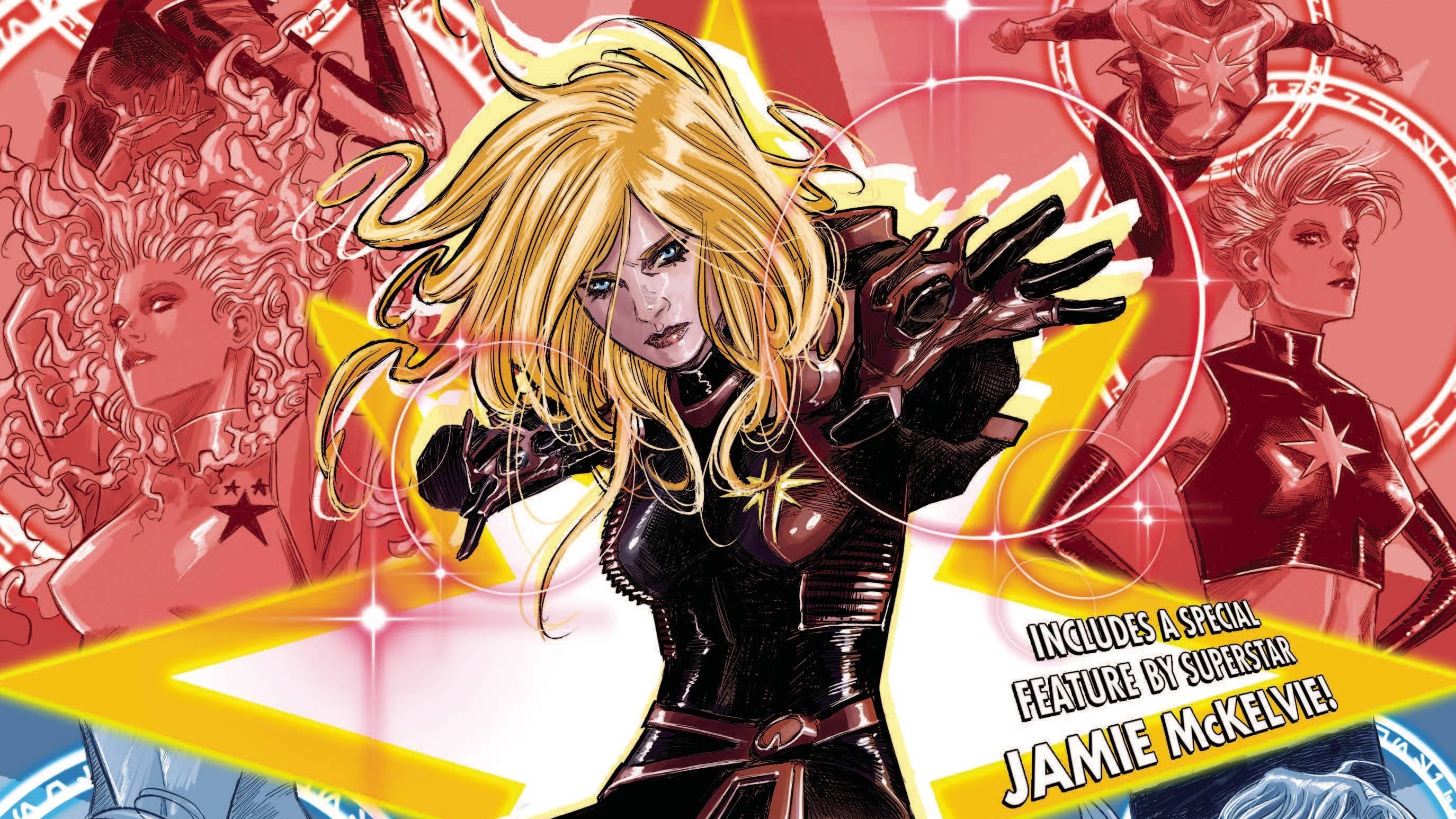Several varieties of heroics as a young activist means Ms. Marvel and Captain Marvel in Marvel Snapshots: Captain Marvel #1 written by Mark Waid, art by Claire Roe, colors by Mike Spicer, and letters by Joe Caramagna.
Marvel Snapshots: Captain Marvel is not for me. I wanted to like it. I gave it chance after chance but at the end of it all I am left with are hollow references to important structural and societal issues. Here’s a good standard: if you can remove references to cultural movements or concerns and have the story be exactly the same, then you haven’t done your job. There’s a way to speak to young adults and buddies? This ain’t it.
In 2021, teenagers do not say amazeballs. Jenni Saito, our fourteen-year-old protagonist certainly isn’t saying “amazeballs.” There’s also no way in Hell that clicktivism is an argument that conceivably happened between Jenni Saito and their teacher. Clicktivism isn’t actually a thing people argue about offline and it’s definitely not something a 14-year-old is going to get into a shouting match with their teacher about, especially concerning Facebook posts. Teenagers aren’t on Facebook and they haven’t been for years. That’s what makes the entire one-shot feel like an insincere attempt at capturing an audience’s attention without putting in the work of cultivating it.
Mark Waid is writing for a cultural moment that has already happened. My main gripe with the entire construction of this story is that it’s trying to signal an openness to gender and non-conformity but the understanding simply isn’t there. Why the hell would Kamala and Carol actually spend time going into the ways they are not conforming? Nonconforming people already know they don’t conform. Describing the manner of nonconformity feels demonstrative of someone who isn’t all together verse in or comfortable with the topic. I can’t help but think this story would have been handled better in another’s hand. There are germs of possibility but they are all squandered with a heavy-handedness that make my insides curdle.
Jenni already isn’t interested in gender binaries. There are moments which could have been emotional, like when Jenni tries to put on the lipstick her aunt sent her, but they end up feeling empty because I don’t trust the writer.
It’d be one thing if the book was doing something to bring a new awareness or wrinkle to some of the social issues discussed here but we don’t even have that luxury. Hell, we don’t even have the benefit of seeing Kamala and Carol demonstrating their powers, at least not enough to be remotely interesting.
I think Waid is trying to say that life isn’t about pleasing boys, society, or your parents gendered expectations. It doesn’t say that though, it actually ends up reinforcing the negative impact these norms have on our lives because the entire plot is constructed around the response to these damaging norms. You violate and change expectations by living your life, saving the universe, being you.
Listen, this review might make me big levels of unpopular but I’m willing to risk my absolutely zero-percent of klout to say that sometimes good intentions aren’t enough, okay? I can’t believe that Kamala and Carol are going to sit down and tell a story to Jenni about these pivotal moments in their superhero genesis and both of them end up being responses to men in their life? No. Thank you.
Don’t even try to come at me. I will go totally Andrew Cuomo on your ass. No, I won’t kill your grandma and then not count her body, but I will make threats I have no intention of following through with. I just want us to unpack the problem with the plot a little bit.
It’s not that Carol and Kamala can’t have been motivated by events in their life, it is that we’re sitting here reading a story that is supposed to be about Captain Marvel, but it’s not. It is about what happened to Captain Marvel. It makes Carol and Kamala feel like passengers in their story. That’s where it becomes problematic, the action is happening in front of us. Carol and Kamala are supposed to be fighting and responding to something happening in real time, but that action becomes secondary to them telling a moralizing tale to Jenni about just being yourself. There is hardly any demonstration that their power comes from their agency. It does not come purely as a response to what happened to them.
Another misstep for me with respect to the plot here is Jenni being wide-eyed at Carol’s enrollment in the Air Force. Listen, I don’t know if you’ve talked to any teenagers lately but they aren’t exactly sold on America’s never-ending war. What in Jenni’s backstory would make us believe they would be interested in the military industrial complex? Nothing as far as I can read.
Jenni dyes her hair pink.
Jenni wears a Black Lives Matter t-shirt.
Jenni protests in public.
But who the hell is Jenni? What do they want? What motivates them? Why are these protests and social movements important to them, to us? Is Waid just calling them out to do so? If there’s nothing said about how or why the manner of protest matters, or why Jenni feels so personally motivated to risk being grounded or upsetting their parents, then these social movements and causes only serve as window dressing.
We get nothing of what makes Carol and Kamala popular and beloved as characters. What makes them powerful superheroes isn’t that they are heroic as a response to trauma or what has happened to them, what makes them heroic is that they have chosen their own path, their power. They have made their superheroicness in the image of themselves, not what anyone else wants. Now that might be the message Waid was trying to get across here but it only comes through in the most painful, cringeworthy, adult moralizing towards children, fashion.
Marvel Snapshots. Such highs. Such lows.
Andrea Ayres is a freelance writer and pop culture journalist.

